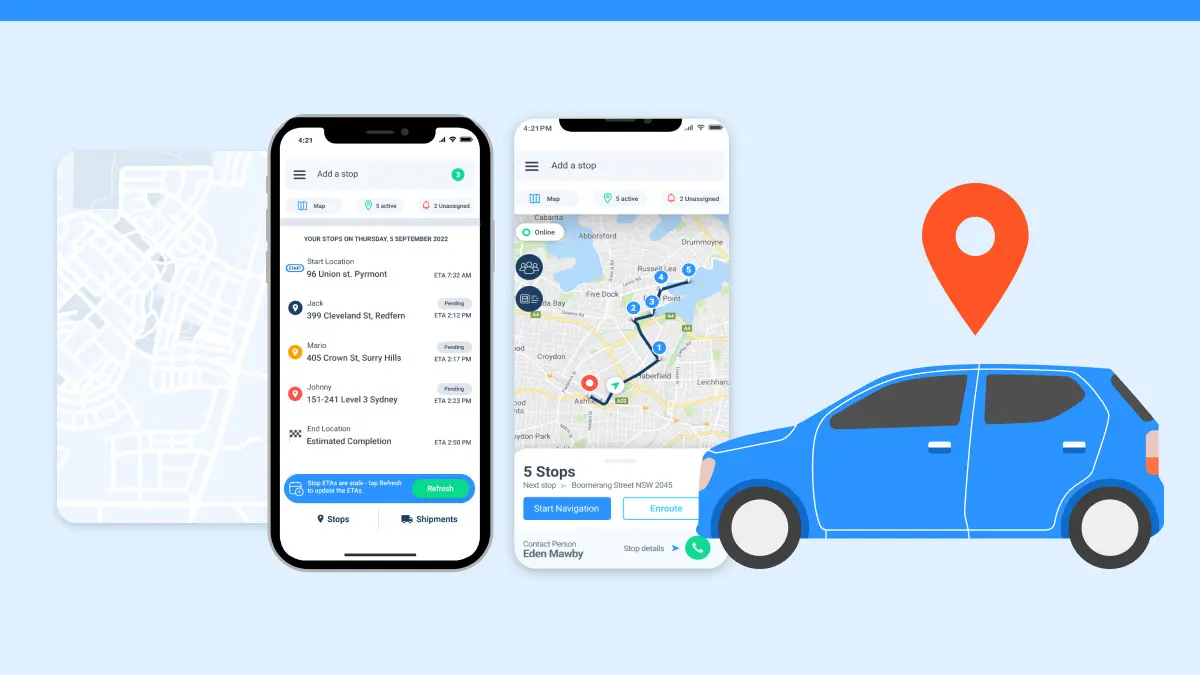Just How GPS Tracking Can Enhance Your Service Workflow
Just How GPS Tracking Can Enhance Your Service Workflow
Blog Article
Browsing the Future of GPS Tracking: Innovations, Obstacles, and Opportunities Ahead
As we stand at the crossroads of technological advancements and social implications, the landscape of general practitioner monitoring is poised for a transformative journey in advance. The advancement of GPS technology has been rapid, introducing a brand-new period of real-time monitoring capacities that guarantee unprecedented levels of precision and effectiveness. Nonetheless, with great development comes excellent duty, as information privacy worries impend large and safety and security challenges in general practitioner monitoring raise important inquiries about protecting sensitive details. Yet, amidst these obstacles lie hidden opportunities waiting to be checked out, supplying a peek right into the untapped potential of a market at the brink of change.
Development of GPS Technology
Developed for armed forces functions, General practitioner technology has actually developed to become an ubiquitous device in numerous sectors, including transportation, logistics, agriculture, and individual navigation. Early General practitioner systems were defined by limited coverage, reduced accuracy, and bulkier hardware requirements.
One secret milestone in the development of GPS innovation was the advancement of Selective Availability (SA) in the 1990s, which deliberately deteriorated the accuracy of civilian GPS signals. The discontinuation of SA in 2000 substantially enhanced GPS accuracy for noncombatant individuals. Succeeding advancements, such as the deployment of additional satellite constellations like Galileo and BeiDou, have further enhanced GPS protection and accuracy, making it an important tool in day-to-day life. As general practitioner innovation remains to develop, we can anticipate additional improvements in efficiency, coverage, and accuracy, opening up new possibilities for development and applications throughout various sectors.
Real-Time Monitoring Improvements
Structure on the improvements in GPS innovation that have actually revolutionized precision and coverage, real-time monitoring has actually emerged as a crucial location of innovation with profound implications across different markets. Real-time tracking improvements enable organizations and organizations to keep track of possessions, personnel, and vehicles instantaneously, offering important insights for decision-making processes - gps tracking. By leveraging real-time data, companies can boost operational efficiency, improve client service, and guarantee the safety and security and safety of their possessions
One of the essential advancements in real-time monitoring is the integration of synthetic intelligence and artificial intelligence algorithms, which enable predictive analytics and anomaly detection. These abilities permit for aggressive maintenance scheduling, route optimization, and danger mitigation techniques. Moreover, the evolution of real-time radar has actually caused the advancement of mobile applications and personalized control panels, empowering customers to gain access to essential details anytime, anywhere.
Data Privacy Problems
Data personal privacy worries include different aspects, including the storage space, sharing, and retention of area data. Services have to carry out robust security measures to safeguard GPS monitoring data from cyber threats and information breaches. Transparent plans concerning data collection practices and the objective of tracking are necessary to build trust with customers and make certain compliance with information security guidelines.
Safety Challenges in GPS Monitoring
Dealing with data personal privacy worries in GPS monitoring is delicately linked to mitigating the protection tests that emerge from potential susceptabilities in the modern technology. One of the primary safety and security challenges in GPS tracking is the danger of unapproved accessibility to delicate area information.

An additional protection challenge is the possibility for jamming or spoofing GPS signals. Implementing durable encryption, verification procedures, and signal confirmation procedures are crucial actions in attending to these safety and security challenges in GPS monitoring.
Emerging Opportunities in the Sector
The growing area of GPS monitoring technology offers a myriad of promising opportunities for industry growth and advancement. One essential chance depends on the expansion of general practitioner monitoring applications past conventional markets. Industries such as logistics, transportation, and fleet monitoring have actually been early adopters of GPS innovation. Emerging chances are now arising in areas like medical care, agriculture, and environmental monitoring. As an example, general practitioner tracking can reinvent person care by enabling remote monitoring of essential indications and guaranteeing prompt clinical help. In agriculture, general practitioner innovation can enhance plant management methods and enhance overall yield. In addition, ecological surveillance can gain from GPS monitoring by making it possible for real-time information collection for environment research and conservation initiatives.
In addition, the increasing need for linked devices and IoT solutions presents a ripe chance for GPS monitoring firms to increase their offerings and create ingenious services that provide to a more linked globe. By exploiting on these emerging chances, GPS content monitoring companies can place themselves for continual growth and success in the vibrant landscape of the market.
Verdict
In conclusion, the future of General practitioner monitoring is noted by continuous development and innovation in technology. As the market relocates forward, browsing these challenges will certainly be vital to ensure the continued growth and success of GPS tracking technology.
With great innovation comes excellent duty, as information privacy worries loom big and protection difficulties in General practitioner monitoring raising important questions concerning safeguarding delicate information.With the rapid proliferation of GPS monitoring modern technology in various industries, dealing with data personal privacy concerns has actually come to be a critical important for both services and customers alike. The collection of place data through GPS monitoring raises substantial personal privacy problems, you could look here as it makes it possible for the monitoring of individuals' motions and behaviors. Services making use of General practitioner monitoring should prioritize guarding this data to prevent unauthorized accessibility or abuse that could compromise people' personal privacy legal rights.
Services need to apply robust safety and security procedures to secure General practitioner tracking information from cyber hazards and data violations.
Report this page